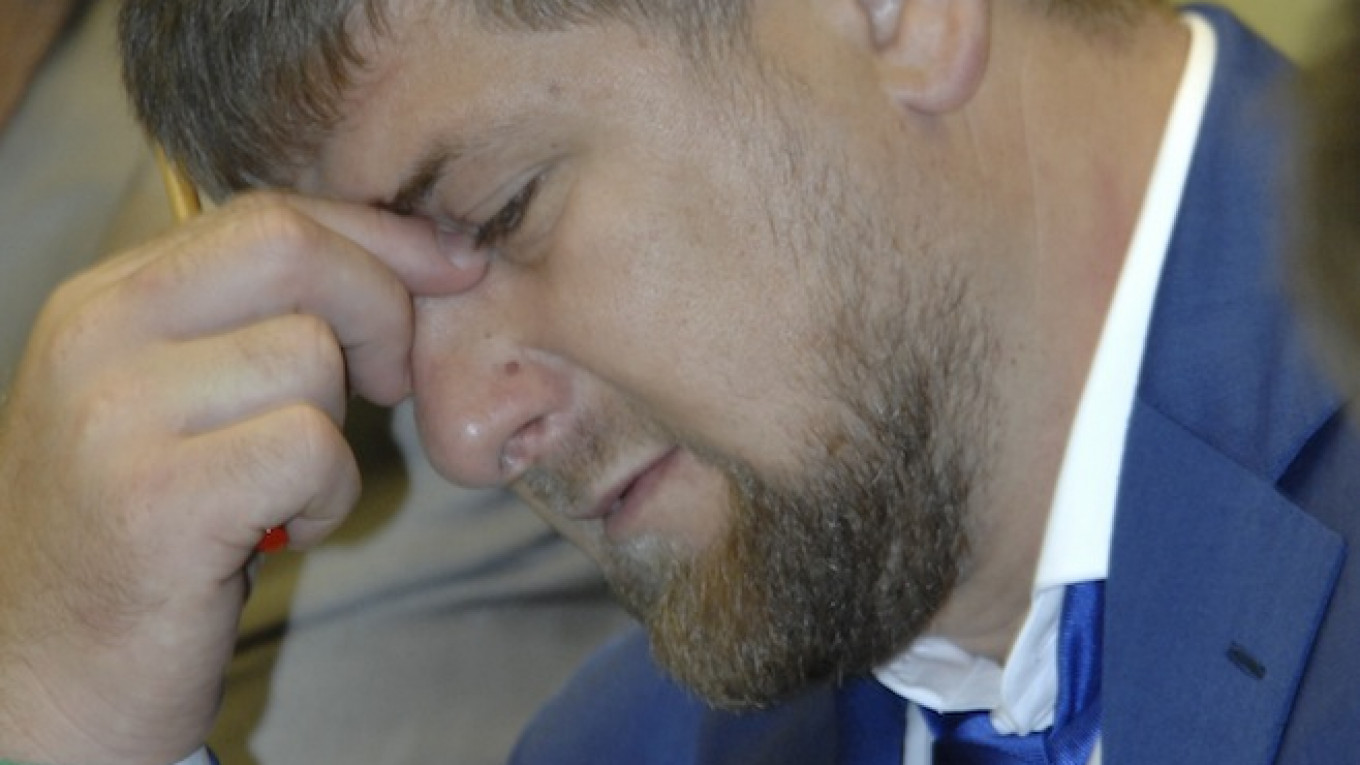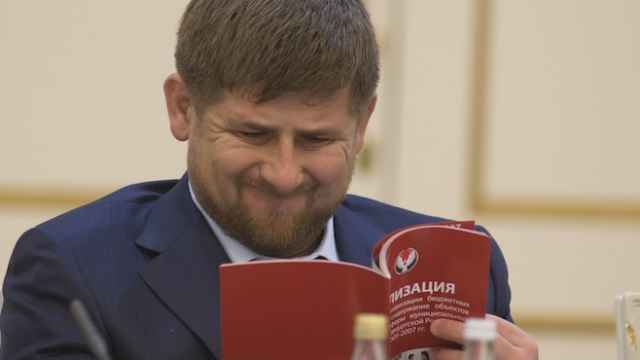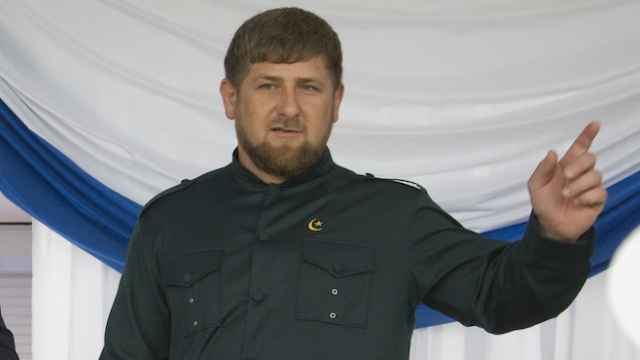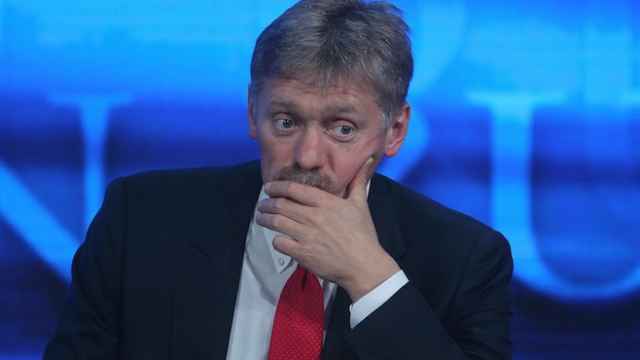Instagram on Monday removed a video posted by the leader of Russia's republic of Chechnya that showed Russian opposition leaders in the crosshairs of a sniper rifle.
A spokesperson for the file-sharing website said Chechen leader Ramzan Kadyrov's video violated Instagram's community guidelines, which prohibit threats and calls for violence, the business daily Vedomosti reported.
Links to Kadyrov's video now show a message that reads: “Content unavailable.”
Kadyrov responded late Monday night with another Instagram post, denouncing the removal of his video as an infringement on his freedom of speech.
“As soon as I said a few words about the United States leash dogs, they immediately removed the post from Instagram,” he wrote. “That's their lauded freedom of speech, American-style. You can write whatever you want, but don't touch America's dogs, the friends of the State Department and Congress.”
Russian officials routinely blame their country's troubles on the United States, and accuse the Kremlin's political opponents of serving the interests of Washington — which, Kremlin loyalists claim, is seeking to destroy Russia.
The opposition figures targeted in the video were Mikhail Kasyanov, a former prime minister and current leader of the PARNAS political party, and Vladimir Kara-Murza, a PARNAS deputy chief and project coordinator at the pro-democracy “Open Russia” initiative, founded by former oil tycoon turned opposition figure Mikhail Khodorkovsky.
Kara-Murza suffered acute renal failure in late May, 2015, and spent a week in a coma – an unexplained illness that some of his allies said could have been caused by poisoning.
He responded to the latest Kadyrov video by tweeting: “Last time, he wrote the words: 'Those who didn't understand, will,' in the same Instagram on May 25. The day before my poisoning.”
Russia's leading human rights advocate Lyudmila Alexeyeva, who heads the Moscow Helsinki Group, called the video a “direct threat,” Govorit Moskva radio reported on its website Monday.
Kasyanov and Kara-Murza also described the video in similar terms, and said they would seek legal action.
Meanwhile, the Kremlin has ignored bellicose remarks by the Chechen leader, who proclaims unquestioning loyalty to Russian President Vladimir Putin.
The head of the presidential human rights council, Mikhail Fedotov, said Monday that Kadyrov's video was misinterpreted by those “who don't understand the language of metaphors,” but said the Chechen leader might wish to tone down what Fedotov described as a PR campaign, the Interfax news agency reported.
“There are some psychologically unbalanced people in the country who might seriously think that the head of a Russian Federation region is calling for the murder of a politician, and take his words as a call for action,” Fedotov was quoted as saying Monday.
The Chechen leader verbally attacked members of the Russian political opposition in January, calling them “jackals” and “enemies of the people.”
Following an outcry from opposition-minded public figures, Putin responded about a week later, praising Kadyrov as an effective leader.
Contact the author at newsreporter@imedia.ru
A Message from The Moscow Times:
Dear readers,
We are facing unprecedented challenges. Russia's Prosecutor General's Office has designated The Moscow Times as an "undesirable" organization, criminalizing our work and putting our staff at risk of prosecution. This follows our earlier unjust labeling as a "foreign agent."
These actions are direct attempts to silence independent journalism in Russia. The authorities claim our work "discredits the decisions of the Russian leadership." We see things differently: we strive to provide accurate, unbiased reporting on Russia.
We, the journalists of The Moscow Times, refuse to be silenced. But to continue our work, we need your help.
Your support, no matter how small, makes a world of difference. If you can, please support us monthly starting from just $2. It's quick to set up, and every contribution makes a significant impact.
By supporting The Moscow Times, you're defending open, independent journalism in the face of repression. Thank you for standing with us.
Remind me later.






